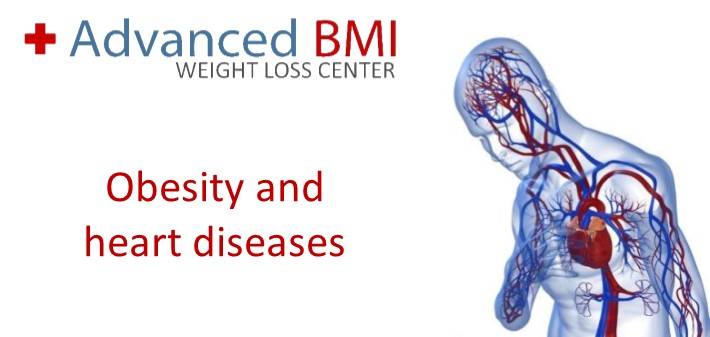There is numerous heart disease, which are associated with obesity.
Obesity is a key factor behind the incidence of the most serious heart disease, which claims your life quickly after suffering with terrible pain, either directly or indirectly through high LDL cholesterol in the blood, as well as the high levels of sugar in the blood, in addition to high blood pressure and much more. In the following article, we are going to discuss the types of heart disease, which could be caused by overweight and obesity.
Excessive fat, overweight, obesity and heart disease.
1- Obesity and arterial heart disease:
Until recently, obesity was seen as a secondary cause of heart disease. It was considered as a cause of many risks directly affecting the heart, such as high cholesterol and fat or high blood pressure, and high levels of insulin in the blood, which as a result can cause the coronary (arterial heart) disease. Recently, many studies stated that the increase in the body mass index, caused by overweight or obesity, are deeply linked to the coronary heart disease, specially arteriosclerosis.
The increased level of fat and cholesterol in the body leads to the deposition of fatty layers on the arteries of the heart. This could decrease the amount of blood flowing to the heart through the narrow arteries. This is called atherosclerosis and can provoke heart clots.
2- Congestive heart failure disease:
Obesity often cause a hypertrophy of the left ventricle. It is a common disease for most obese people. In addition, to some extent it is linked to high blood pressure, which leads to an increase in blood pumping from the heart. With time, this will initiate a progressive weakness in the heart muscle and this pump will be unable to perform its mission properly.
3- Heart and diabetes disease:
Scientists recently stated that overweight and obesity lead to high blood pressure, and fat accumulation in the blood. This will make the insulin role more difficult to accomplish, and most of the insulin will be inefficient (insulin resistance). The body needs the insulin to process the metabolism of sugar, which is the main energy source in the body. If the body has not been able to use insulin efficiently, then it increases the risk of diabetes, which is a major factor for the increasing of heart disease. Statistics showed that 58% of diabetes and 21% of heart diseases are directly related with a body mass index (BMI) over 21.









